The Ryu ga Gotoku series, known in the West until recently as Yakuza before the sensible name change to Like a Dragon, debuted in Japan in 2005. Enough new entries and offshoots have arrived since then to establish a beloved franchise. Some Sega fans, myself included, even think of Kazuma Kiryu before Sonic the Hedgehog when pressed to name a favorite Sega mascot. This eighth proper installment, Like a Dragon: Infinite Wealth, explores much of that rich legacy while taking bold steps forward. In so doing, it offers a thoroughly satisfying experience that veterans and newcomers alike won’t want to miss.
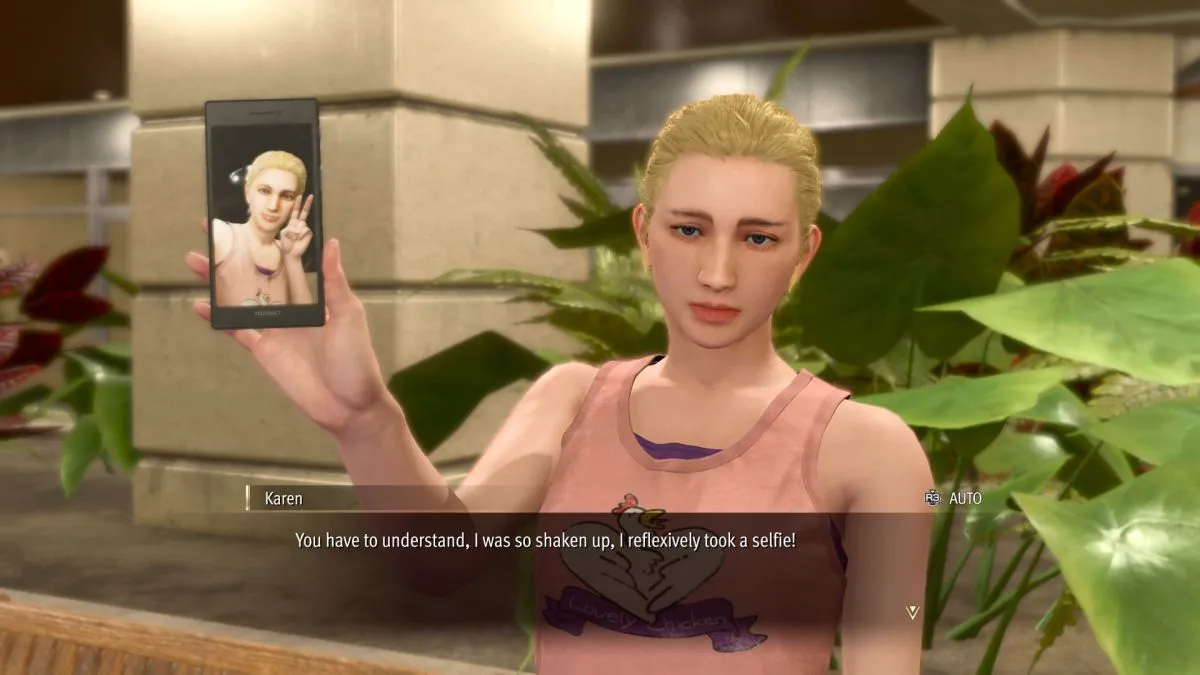
Good vibes
At the time of its inception, the Like a Dragon franchise was an action/adventure endeavor. Arriving a few years after Grand Theft Auto III, it in some ways felt like Japan’s take on that other franchise. The Japanese underworld, populated by bickering members of the yakuza crime organization, offered a grim setting with the opportunity for considerable violence. Characters battled and backstabbed their way to seats of power as local authorities largely turned a blind eye.
Since then, anchored by recurring protagonist Kazuma Kiryu, new series entries have doubled down on everything that made the earliest installments such a delight. They’ve expanded their side content and told substories that explore what it means to be human (and perhaps especially a “good person”) in a confusing, dangerous world.
Humor and a sense of playfulness have remained a strong component of the series. The size of their role has also increased. Sometimes, when you’ve watched someone you liked take a bullet, you need a moment to collect yourself. The writers have a good sense of such things and their love for wacky scenarios remains in place. Infinite Wealth features dozens of substories that introduce compelling non-playable characters dealing with problems only Kasuga Ichiban and his friends can solve. Some of the scenarios are truly bizarre (why would aliens want to abduct a chicken?). Others are bittersweet. A lot of the themes and sometimes even the characters are familiar, but the writers have a lot of fun playing with expectations. Diversion can be just what the doctor ordered.
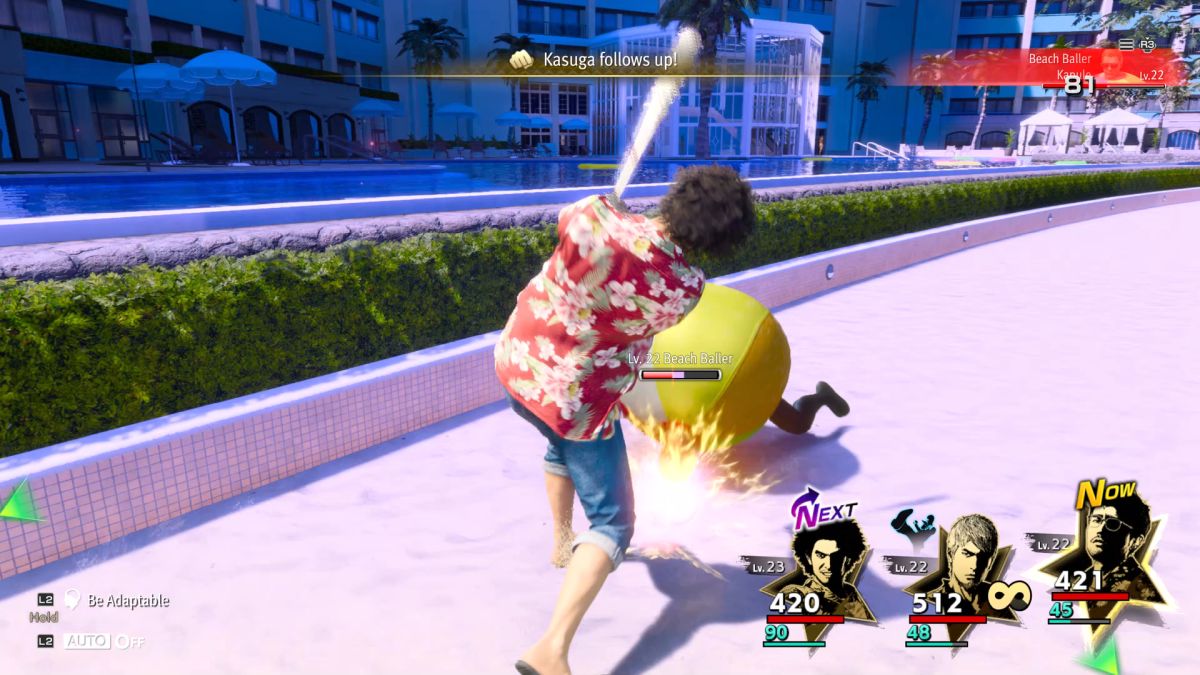
A fighting chance
Yakuza: Like a Dragon, which arrived in 2020 and introduced the heroic Kasuga Ichiban, implemented turn-based combat and finally acknowledged an impression some fans may have had for some time: the Like a Dragon series now more closely resembles a traditional JRPG experience than it does Grand Theft Auto. The games have simply found too many activities to fill the time spent outside combat. Interrupting your exploration so you can mash buttons for a bit and wrap a bicycle around someone’s skull has begun to feel like a distraction, rather than the highlight it once was. Still, violence is an inescapable part of the yakuza life. Each new entry in the series must acknowledge that history.
If you skipped Yakuza: Like a Dragon, the change to a turn-based system might catch you by surprise. Even Like a Dragon Gaiden: The Man Who Erased His Name, released late last year, offered a traditional brawling experience (albeit with multiple fighting styles and supporting gimmicks). It can feel a bit weird now as the game briefly walks you through things like turns and character movement range, to say nothing of MP and HP meters. But these traditional RPG elements justify the focus they receive.
In battle, you’re not left to stare at a static, dull screen while you contemplate which move to select from the menu. Instead, characters shift about, grappling for position and ruining plans. Their positions may open new opportunities. Some of your special moves wipe out everyone in a line, for instance. That ability proves less useful once foes shuffle out of the path. There’s pressure to make good decisions while the window of opportunity is available. In addition, you can take advantage of timing-based blocks. When an enemy attacks a member of your party, you might press a button at the right moment to diminish the damage inflicted. In some cases, timeliness even allows for an automatic counter.
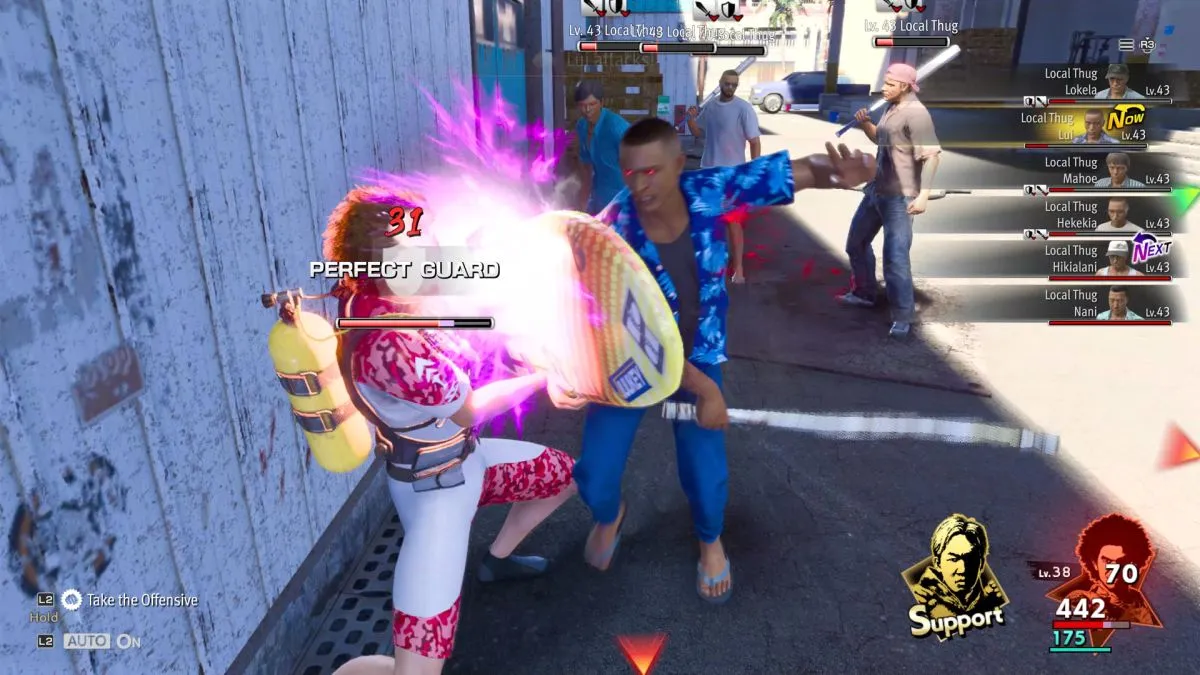
Combat offers numerous opportunities for misadventure and for triumph. Your party members develop bonds that make new moves available. They can learn more about themselves, which unlocks new abilities, the better to mop the floor with miscreants. In this way, allies aren’t simply replaceable drones. There is also a jobs system that lets you train your crew members to develop other proficiencies. If you get bored with Nanba ranking up to learn the skills of a homeless person, for instance, he can take on a new profession and even bring some of his old abilities along with him.
Numerous characters join your party over the course of the lengthy campaign, learning and mastering new skills and weapons along the way. You might easily devote dozens of hours to building your party into the perfect fighting machine, but you don’t have to. The depth is there if you want it, and yet combat doesn’t have to feel a whole lot different than it always did. There’s even an Auto Battle function, with a few different AI routines you can switch between on the fly. That way, you don’t have to worry about frequent menu dives. Instead, you can focus on blocking and landing heavier blows when the situation warrants it. I consider the game’s approach to combat the perfect compromise, one that feels faithful to the franchise’s history.
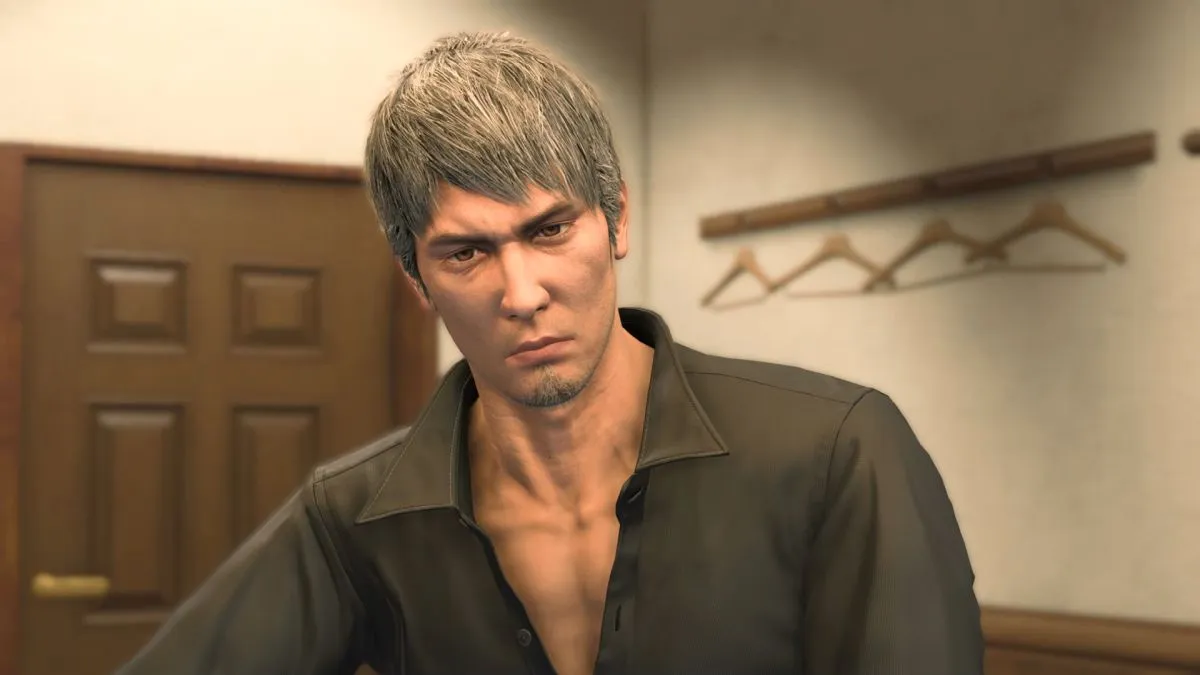
Dragon their feet
Although the active party grows to include a diverse cast of new and returning characters, you get to know two of them especially well.
Ichiban Kasuga is the protagonist from the start. Following the events depicted in previous games, he now works at an unemployment agency, helping former yakuza soldiers find meaningful work in a world that would rather pretend they don’t exist. He is “the hero of Yokohama,” and he feels pretty good about his new existence until the walls all come crashing down around him. When things are at their worst, he receives an assignment that takes him to Hawaii. There, he hopes to find a woman who may be his biological mother.
Kasuga’s adventure soon reunites him with Kazuma Kiryu, who is also in Hawaii after events depicted in last year’s Like a Dragon Gaiden: The Man Who Erased His Name. Kiryu provides welcome assistance in response to Kasuga’s naked need. The two men soon form a close enough bond that Kiryu finally makes a stunning confession. It’s a game changer, you might even say.
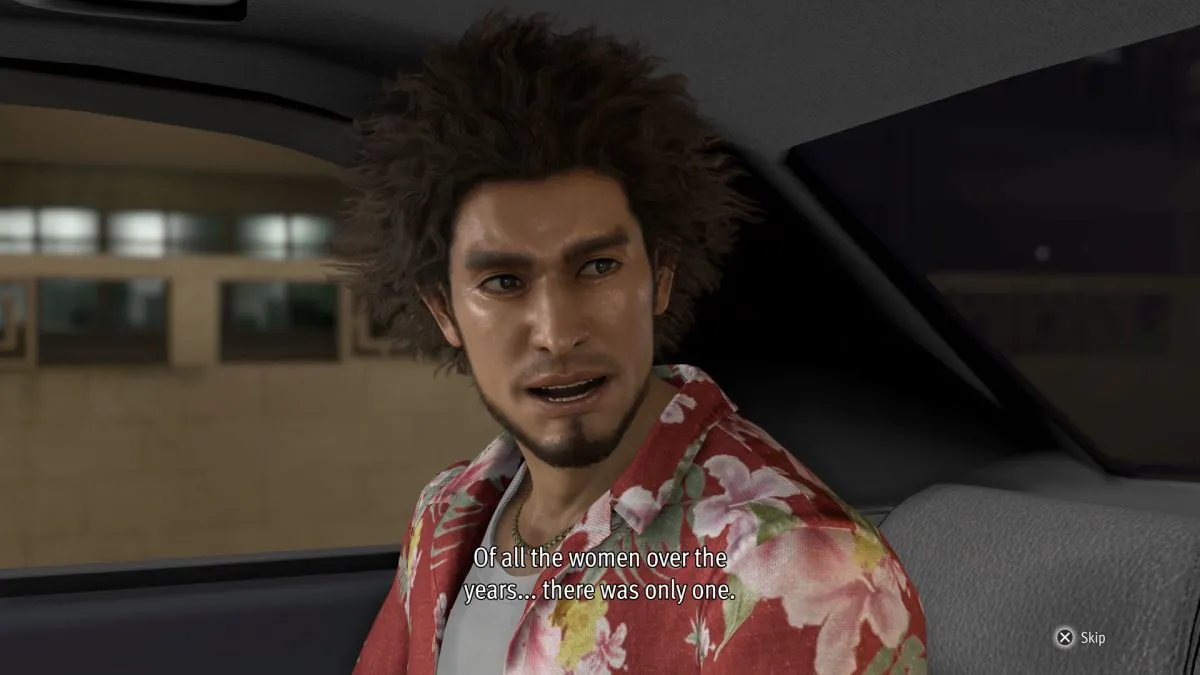
Over the remainder of the campaign, the two characters both must come to terms with the big changes in their lives. As is typical for a game in the series, Infinite Wealth doesn’t shy away from asking the big questions. Both of the charismatic leads are similarly reflective, despite coming from very different places that suit their established personalities and backgrounds. At the center of it all, there is a quest to protect an innocent individual from twisted machinations from deep within the halls of power.
Like a Dragon: Infinite Wealth explores its interesting characters with numerous substories facilitated by loads of spoken dialog. I didn’t love the delivery of every single line. Some of the characters sounded a bit different than I had pictured in my mind. But even the actors who didn’t feel like a perfect fit at the start grew on me as they kept talking. Not every scripted line is spoken. Sometimes, lips don’t move to match what’s being said (or move at all, in a few cases). But those are minor quibbles, rarely encountered. The presentation when it matters is always first-rate. I can’t remember the last time I played a game that did such a thorough job of establishing emotional connections between each of its central cast members.
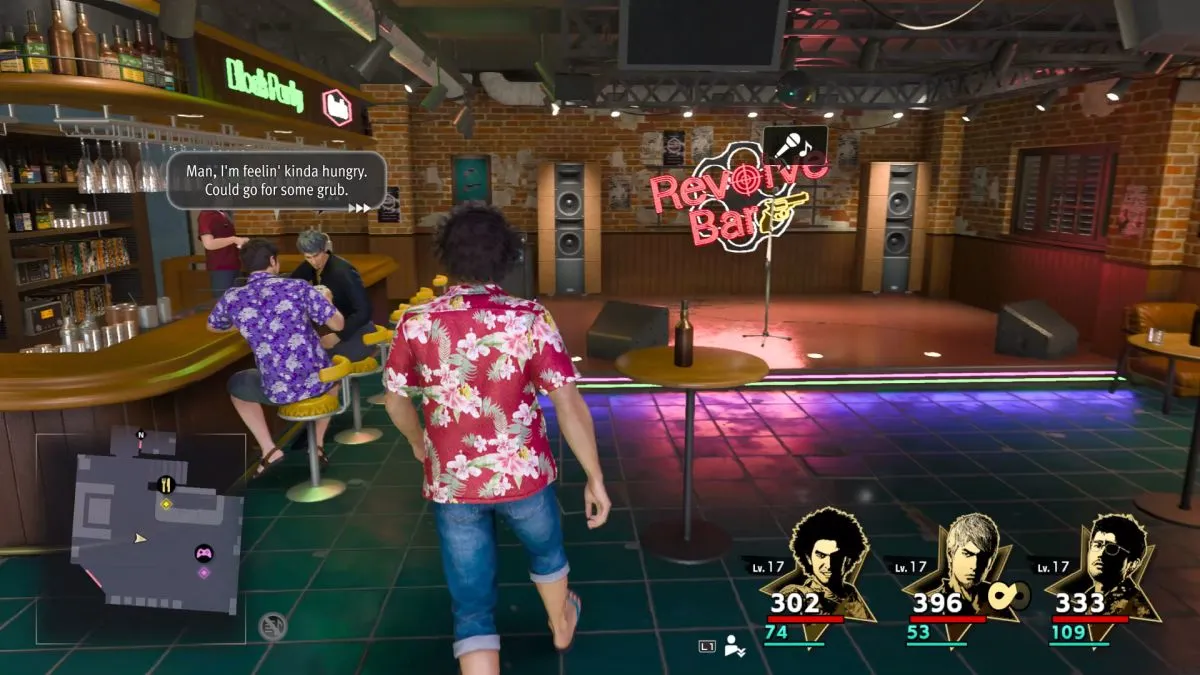
A different sort of place
Ichiban Kasuga leaves Japan behind to explore the tropical paradise of Hawaii early in the game. There was a part of me that resisted the idea. I’ve loved the hours past Like a Dragon games let me spend exploring the streets of neighborhoods throughout Japan. Such activity was a significant part of the appeal of the franchise, so I certainly had reservations.
My concerns proved unfounded. Kasuga arrives in Hawaii and quickly establishes connections within a community of individuals who also are visitors from Japan. Quite a few activities examine the culture of Hawaii, including its food and history with settlers from across the water. The exploration feels strangely familiar, much to Kasuga’s delight (and mine). The mini-games you remember, if you played previous Like a Dragon games, are present and accounted for. Hawaii might lack a Club Sega, but there are numerous arcade machines to play, including Spikeout, SEGA Bass Fishing, and Virtua Fighter. There also are locals willing to play mahjong, darts, shogi, and traditional gambling games, among other pursuits. And you know there’s karaoke.
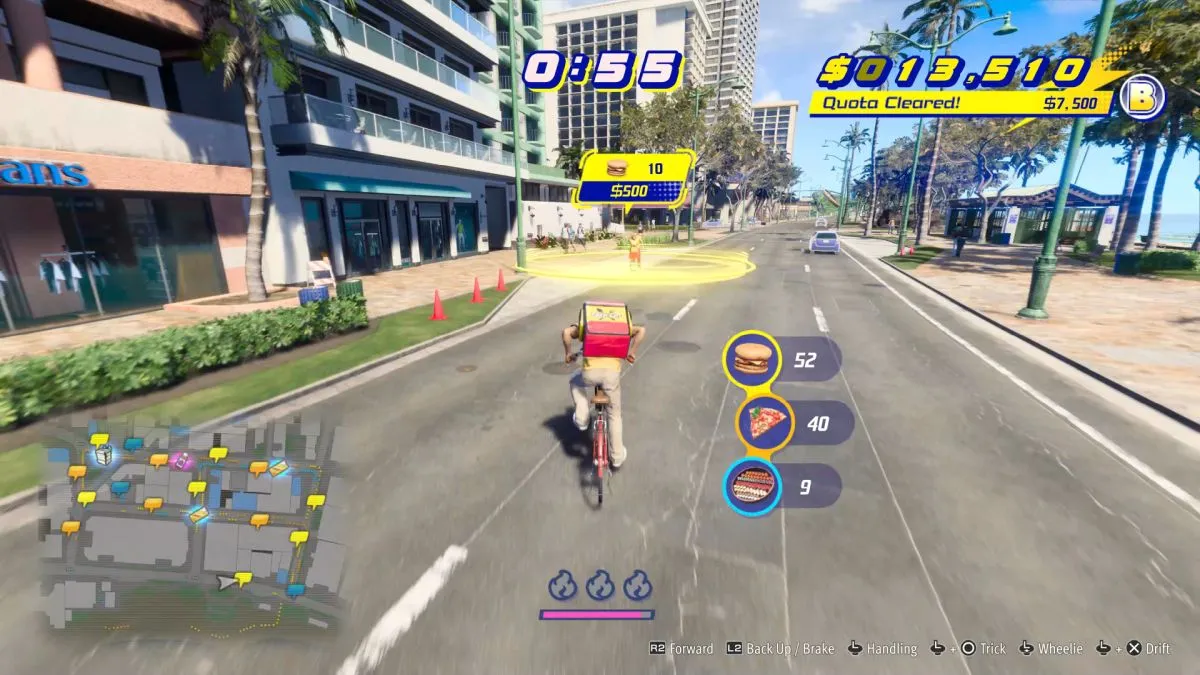
One of the more robust mini-games is called Crazy Delivery. You ride a bike, gathering different food items to deliver to waiting sidewalk diners. If you perform tricks with your bike in rapid succession, you generate score multipliers. However, you must avoid traffic and pedestrians, such as construction workers. Several score objectives are available. The mini-game feels like a simplified—but still substantial—take on another arcade classic from SEGA: Crazy Taxi. Having to go about your business without hearing from The Offspring feels wrong on some level, but the mini-game is still a blast.
Additional activities include an entire social network experience. You roam the city, meeting locals and waving to them to form a connection. There are 200 such individuals wandering the streets of Hawaii, including various animals. Typically, a friendly gesture and a hearty “Aloha!” are enough to form and build that relationship. Sometimes, you have to beat away threatening thugs, or provide food or beverages, or make a small purchase. The mode isn’t hugely rewarding, but it kept me engaged and gave me a new reason to watch the crowds when otherwise I might not have paid them much heed.
In truth, I can’t remember a Like a Dragon game that inundated me with so much to do, one sidewalk or alleyway after another. Hawaii, as pictured here, has become one of my favorite game worlds to explore, even though the game opens in a very active Yokohama, Japan. There is more ground to cover this time around than in any previous entry in the franchise, and more to do nearly every step of the way.
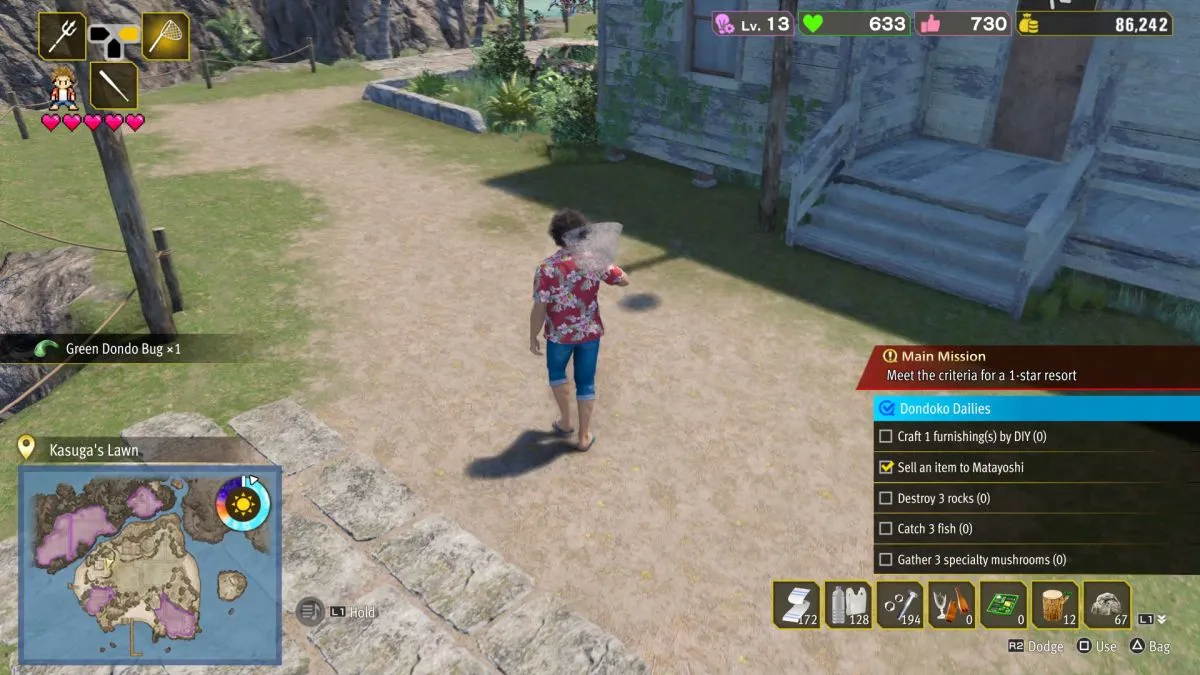
Games within a game
Around a third of the way through the campaign, Infinite Wealth introduces a couple of additional mini-games that promptly proved I would need to find some other term to describe them.
Dondoko Island is such a substantial experience that SEGA could package it separately and I would happily buy it and play it. Kasuga arrives on an island local to Hawaii, which was once a famous resort. Now, it’s a dumping ground for toxic waste. The owners aren’t happy about that change, and Kasuga becomes invested in returning the potential paradise to its former glory. The process feels like it was lifted straight out of the Story of Season/Harvest Moon franchise.
Play is divided by “days,” with only so much time available to complete various tasks, such as fishing, finding insects, gathering resources, and building structures and attractions to cater to guests. New guests have new demands, but satisfying them leads to new opportunities and additional wealth. I spent somewhere between 40 and 50 hours on the island. Even so, there are guests I haven’t entertained. There’s more to the mode than I have room to outline here, but it’s definitely substantial (and a nice way to take a soothing break when the main campaign’s subject matter explores darker territory).
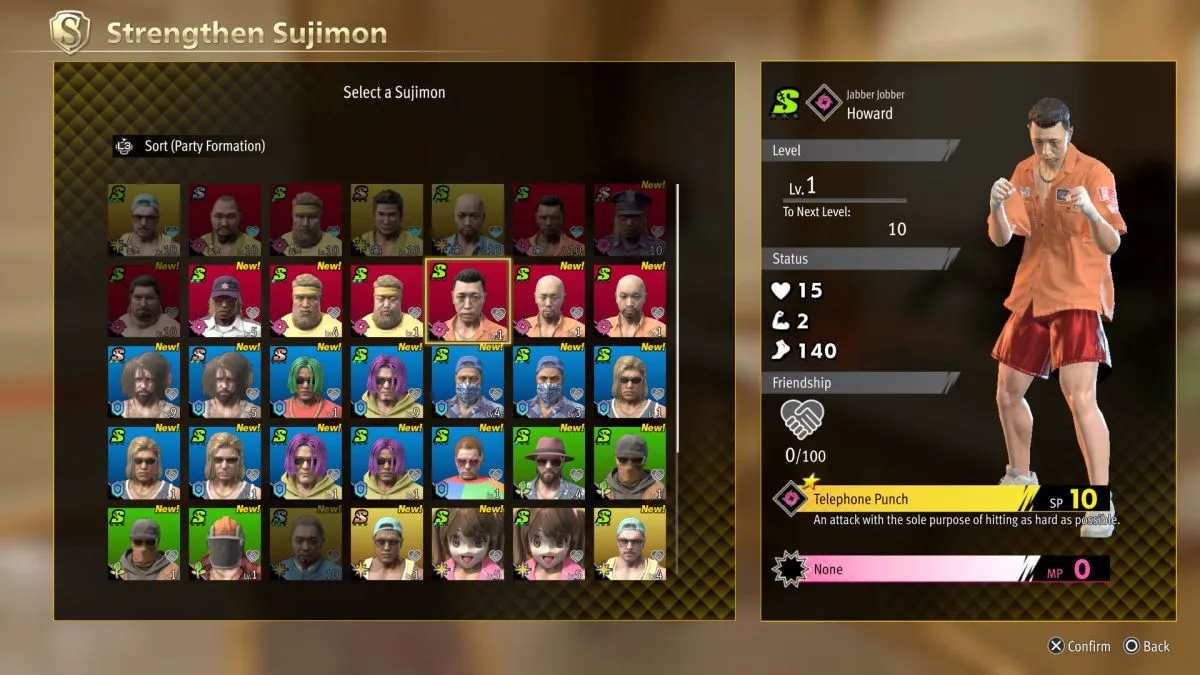
Another such distraction is Sujimon, which works a lot like party building in the old Shin Megami Tensei games. As you battle typical mobs throughout Hawaii’s not-always-mean streets, you sometimes end a conflict with the opportunity to offer a gift. Your generosity might allow you to recruit an ally to your team. Then you can train them, or even fuse them so they evolve into tougher forms.
There are literally hundreds of varieties of Sujimon, even though a lot of them are just reskins of a few main types. You bring them with you to tactical Sujimon battles against other trainers and even gym leaders. Now, where have I seen something like that before?
If you let them, the Dondoko Island and Sujimon activities can double the amount of time you spend with the game. There also is some crossover, since the Sujimon you gather can gain new strength on Dondoko Island, or eventually help with key chores. It’s no wonder that I had no trouble spending more than 120 hours with the game, even with some diversions not yet fully explored.

Concluding thoughts
Considering how much games cost these days at launch, sometimes it’s tempting to focus on just how many hours of entertainment they promise to offer. I’m not always a fan of that approach, because I often feel that my time is more precious than my money. Why should I care how many hours I can spend with a game if I’m not enjoying myself along the way?
Fortunately, Like a Dragon: Infinite Wealth wins on all fronts. It provided me with dozens upon dozens of hours of activities I found genuinely engaging. I’m happy to finish writing this review so I can go back to playing the game some more, just because.
Like a Dragon: Infinite Wealth is an ambitious next chapter in a beloved saga that exceeds all expectations, a monster of an adventure packed to the brim with enough emotion, action, plot twists, humor, and just plain fun activities to fill several other games. It’s an epic achievement you shouldn’t miss, even if you don’t know Kazuma Kiryu or Ichiban Kasuga from a bento box.

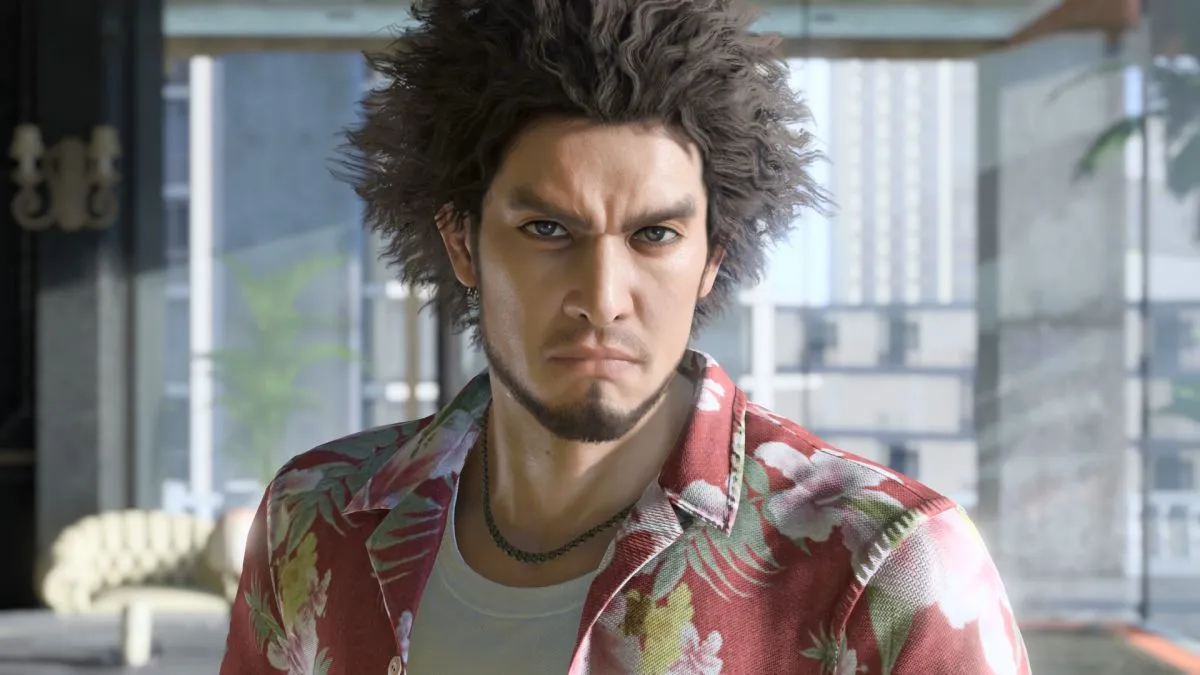




Published: Jan 23, 2024 10:00 am